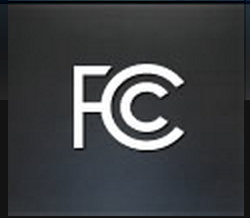 The Maricopa Community College district’s latest appeal to the Federal Communications Commission to let it walk around some of the agency’s restrictions on underwriting spots has been turned down. Maricopa of Arizona runs jazz station KJZZ-FM and classical signal KBAQ-FM. Citing money troubles, it has been pressing the FCC for a waiver to expand the range of underwriter announcements on its streams.
The Maricopa Community College district’s latest appeal to the Federal Communications Commission to let it walk around some of the agency’s restrictions on underwriting spots has been turned down. Maricopa of Arizona runs jazz station KJZZ-FM and classical signal KBAQ-FM. Citing money troubles, it has been pressing the FCC for a waiver to expand the range of underwriter announcements on its streams.
Specifically, the District requested a three year experimental window to provide “[f]actually accurate information concerning interest rates” from various underwriters, among them banks, credit unions, and automobile dealerships. This is forbidden by the FCC, which has ruled for many years that it stretches too far the agency’s leeway on educational radio underwriting announcements. The general rule is that underwriting moments can identify an underwriter but not promote its products or services.
Here’s the FCC language in question: “No promotional announcement on behalf of for profit entities shall be broadcast at any time in exchange for the receipt, in whole or in part, of consideration to the licensee, its principals, or employees. However, acknowledgements of contributions can be made. The scheduling of any announcements and acknowledgements may not interrupt regular programming.”
Maricopa requested the waiver from of the Audio Bureau in May of last year. Rejected, it asked the full five member Commission for a decision, which was delivered on Monday. “The Commission lacks authority to provide the relief which Maricopa seeks,” the FCC says:
“The advertising ban in Section 73.503(d) of the Rules, which Maricopa wants waived, implements the prohibition in Section 399B of the Act. Section 73.503(d) and related Commission policies are carefully calibrated to avoid stations’ running afoul of the statutory prohibition on promotional announcements on behalf of for-profit entities. The rule and policies thus help ensure that NCE licensees do not cross the line between acceptable underwriting announcements and statutorily prohibited advertisements. While Maricopa downplays the magnitude of the underwriting enhancements it proposes to air, saying that the material cannot “be deemed true commercial advertising” because it merely “pushes the envelope slightly” we find nevertheless that Maricopa’s proposal would cross the line established in the statute. Indeed, the agency has issued numerous decisions in the enforcement context holding that the types of underwriting announcements Maricopa proposes, e.g., those including information about sales/discounts/special events and “qualitative adjectives” that are “factually-based,” violate not only the rules but also Section 399B of the Act.”
Republican Commissioner Ajit Pai concurred in the decision. A further relaxation of the Bureau’s underwriting rules should take place in the context of a proceeding, Pai observed, not an experiment granted to one station. But he protested that the majority went too far in calling Maricopa’s proposals unlawful:
I have a hard time understanding how some of the “underwriting advertisements” that air before many of PBS’s most popular programs, such as Downton Abbey, are lawful if all of the “underwriting announcements” that Maricopa would like to air are statutorily prohibited. For example, if it violates the statute for underwriting announcements to use qualitative adjectives based in fact, how can Viking River Cruises tout its “modern river cruise vessel[s]” in a thirty second “underwriting announcement” that obviously appears designed to entice viewers into taking a river cruise so that they can be “transported . . . to a another world, a world of dramatic landscapes, majestic castles and remarkable characters”?
I agree with Pai that the distinctions between underwriter identification and promotion have long been blurred among non-commercial stations. But the Viking Cruises announcement is arguably illegal as well. In fact, it is probable that the trial run that Maricopa has requested has been effectively (and illegally) taking place for years at various NCEs. Maybe it’s time for the experiment to end everywhere.


